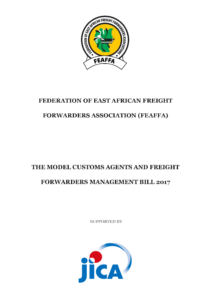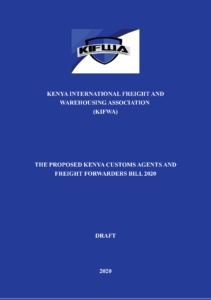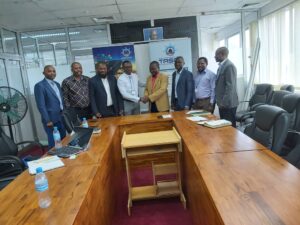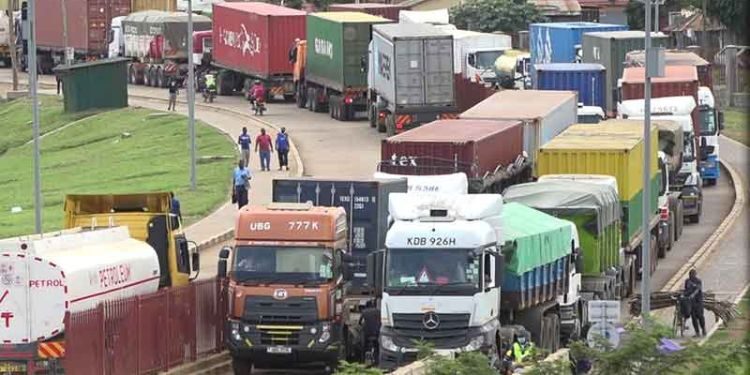For decades, the freight and logistics sector has been the backbone of trade facilitation in East Africa, connecting industries and markets across borders. Yet, despite its central role in driving regional integration and economic growth, the sector has long operated without a clear professional and regulatory framework. The East African Customs Management Act (EACCMA) of 2004, along with its subsequent amendments, provides the legal basis for customs administration. But they focus primarily on the regulation of customs agents and leave out the broader spectrum of freight forwarders and the professional dimensions of their work. This regulatory gap has resulted in inconsistent practices across the region, leaving room for inefficiencies, compliance gaps, and reputational challenges.
Recognizing these challenges, the Federation of East African Freight Forwarders Associations (FEAFFA), in collaboration with national and regional institutions, has taken the lead in championing a regional self-regulation initiative to professionalize and standardize the industry across all partner states. The clearing and forwarding industry in East Africa has long faced challenges of inefficiency, low compliance with existing regulations, lack of ethical standards, integrity concerns, and persistent skills and competence gaps. These weaknesses slow down trade facilitation, increase the cost of doing business, and undermine confidence among themselves, cargo owners, government agencies, and international partners.

Self-regulation offers a credible pathway to tackle these challenges from within the industry itself. It creates a framework for professional accountability, ethical conduct, and continuous capacity development, empowering logistics players to raise their standards, improve service delivery, and strengthen their role as trusted facilitators of trade. Importantly, self-regulation is not meant to replace government oversight. It is designed to complement it. By filling existing regulatory and ethical gaps, it supports the enforcement of laws, enhances compliance, and ensures that industry players operate to high standards of competence and integrity. It also helps relieve Customs of the burden of arbitrating commercial disputes, conserving public resources while strengthening professional responsibility within the private sector.
Beyond internal reforms, logistics practitioners are also seeking to enhance their accountability to both clients and government agencies. A self-regulated profession ensures that freight forwarders and customs agents offer competent, transparent, and compliant services, positioning them to compete effectively in the global logistics arena. This initiative also supports the implementation of the EAC Common Market Protocol (2010), particularly its provisions on the free movement of persons and mutual recognition of professionals — principles that are consistent with Mode 4 of the General Agreement on Trade in Services (GATS).
The push for self-regulation stems from years of industry consultations. With support from the Japan International Cooperation Agency (JICA), FEAFFA initially developed a regional accreditation framework for customs agents and freight forwarders. However, after further review, the EAC technical experts under the Directorate of Customs recommended a broader and more sustainable approach—one rooted in self-regulation through an enabling legal framework. This led to a comprehensive consultative process involving FEAFFA, the East African Revenue Authorities (EARAs), the EAC Directorate of Customs, and national freight forwarders’ associations. The outcome was the Model Customs Agents and Freight Forwarders Management Bill (2017), a regional model framework for accreditation and self-regulation of the industry.

The Model Bill was officially launched in August 2017 during the Global Logistics Summit (GLS) in Dar es Salaam, Tanzania, and was intended to guide Partner States in developing their respective national laws. It set out key provisions for the establishment of regulatory boards at the national level, professional certification and licensing, a code of conduct and disciplinary mechanisms, continuous professional development (CPD), and mutual recognition systems to facilitate cross-border professional mobility. By mirroring the mutual recognition systems already used in professions such as accounting, engineering, and law, the model bill ensured that logistics professionals enjoy regional recognition and mobility consistent with EAC integration goals.
Across the region, significant progress has been made toward institutionalizing self-regulation. Several Partner States have already initiated national versions of the self-regulation bill, underscoring the sector’s commitment to reform and harmonization of logistics standards. For instance, Kenya developed the Proposed Kenya Customs Agents and Freight Forwarders Bill, 2020, a model intended to anchor professional and ethical standards within the industry. However, resource constraints have since slowed the pace of implementation, particularly after the abrupt withdrawal of funding support from TradeMark Africa during the COVID-19 period.

FEAFFA continues to steer regional coordination efforts, mobilize technical expertise, and engage policymakers to sustain momentum. Yet, moving from industry-drafted bills to enacted national laws requires consistent financial and technical backing. Without such support, the vision of a fully professionalized and globally competitive logistics industry risks stalling. This is despite the collective goodwill and groundwork already laid across the East African region.
The freight and logistics industry manages billions of dollars’ worth of goods annually across East Africa. In Kenya alone, the Kenya Revenue Authority (KRA) reports that its Customs and Border Control Department collected about USD 6.2 billion in the 2024/25 financial year, representing 34% of total revenue and an 11.1% year-on-year growth. Across the region, customs revenues remain a key pillar of national budgets of the partner states. Countries with narrower domestic tax bases rely even more heavily on import and export duties and related levies. In Tanzania, for instance, customs and excise duties accounted for about 40% of total tax revenue in the first half of 2024/25, while in Rwanda, import duties represented over 42% of total tax expenditures. Similarly, Uganda and Burundi derive about a third to nearly half of their annual tax collections from customs revenue. On average, customs and international trade taxes contribute roughly 35–40% of total government revenues across the EAC region.
Professionalism and compliance in handling such volumes of trade are therefore essential to maintaining supply chain integrity, ensuring accurate duty and tax collection, and safeguarding national revenues. Yet across the region, non-compliance, unethical conduct, and counterfeit trade continue to impose heavy costs. For example, the Anti-Counterfeit Authority of Kenya estimates that counterfeit and substandard goods cost the East African region more than USD 500 million in lost tax revenue each year.

Once enacted across all Partner States, the self-regulation law will institutionalize accountability mechanisms, promote ethical conduct, enhance compliance, and curb corruption in the logistics industry. It will also ensure fair competition by setting minimum operational standards, protect cargo owners and consumers through professional certification and clear liability guidelines, and establish a database of registered practitioners accessible to Customs and the public. A professional and compliant logistics industry is projected to significantly reduce customs clearance times, lowering logistics costs and improving the region’s global competitiveness.
A formal self-regulation framework is also an opportunity to integrate environmental and sustainability standards into logistics practice. Provisions for green transportation, eco-friendly warehousing, and sustainable office management can be incorporated into professional guidelines. Freight forwarders can adopt cleaner technologies, optimize routes and loads, and reduce emissions, aligning their operations with emerging global priorities on green logistics and low-carbon supply chains while maximizing both environmental and business benefits.
While FEAFFA has laid a strong foundation for this transformation through harmonized training curricula, professional certification, and the introduction of a continuing professional development (CPD) program, progress has been slowed by the absence of a legally backed enforcement mechanism, which the self-regulation law intends to address. Support from governments, regional institutions, and development partners is therefore critical.
Self-regulation represents a defining step toward a professional, transparent, and globally competitive freight and logistics industry that serves both the region’s businesses and its citizens.
The writer is the Communications and Advocacy Officer at the Federation of East African Freight Forwarders Associations (FEAFFA) and can be reached at oniongaam@gmail.com





